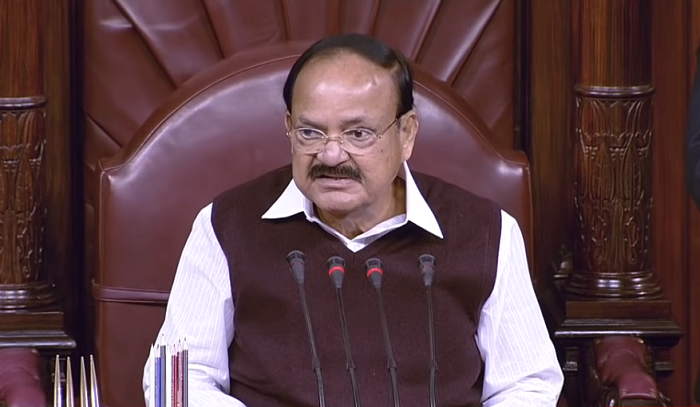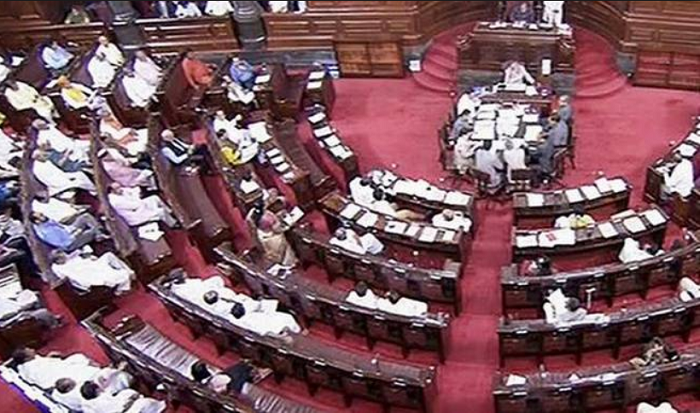#WinterSession : From Consumer Protection bill to the Dam Safety bill, Parliament to consider some salient bills serving the society
Total Views |

New Delhi, December 12: On the second day of the winter session, the chairperson M Venkhaiah Naidu, sincerely paid homage to Geroge Bush, the former president of the United States. “The great admirer of Mahatma Gandhi, Bush had immense faith in the Indian democracy. It was in this presidential tenure that the India-US ties kept on strengthening post cold war. It was under his administration that India and United States signed the treaty of double taxation avoidance agreement.”, said The Indian Vice President deeply remembering Bush.
Naidu also cheered the celebrations for the title ‘Meethoileima’ granted to the Indian woman boxer Mary Kom, the lady winning six gold medals for the country. He further congratulated Soniya Chahal for winning silver medal, Simerjeet Kaur for her bronze star in the Women’s world boxing championship. He also mentioned the success launch of India’s G-SAT 2 by ISRO from French Guiana.

Further in the lower house of the parliament, Consumer Protection Bill,2018, The New Delhi International Arbitration Centre Bill, 2018, Dam Safety Bill,2018 are to be considered for the discussion. Whereas the upper house will be considering and passing the National Trust for Welfare of Persons with Autism, Cerebral Palsy, Mental Retardation and Multiple Disabilities (Amendment) Bill, 2018, the National Council for Teacher Education (Amendment) Bill, 2017 and the Right of Children to Free and Compulsory Education (Second Amendment) Bill, 2017.
The Dam Safety Bill, 2018 :
The Bill provides for constitution of a National Committee on Dam Safety which shall evolve dam safety policies and recommend necessary regulations as may be required for the purpose. It shall maintain liaison with the State Dam Safety Organisations and the owners of dams for standardisation of dam safety related data and practices; examine the cause of any major dam failure; publish and update the standard guidelines and check-lists for the routine inspection and detailed investigations of dams and appurtenances. It will also look into unresolved points of issue between the State Dam Safety Organisation of two states, or between the State Dam Safety Organisation of a State and the owner of a dam in that State, for proper solution. Further the bill lays the guidelines regarding duties and functions of the dam owners, safety measures and data collection, emergency action plans and disaster management along with the offences and penalties in relation. Dam Safety Bill, 2018 however, got introduced in LokSabha today amidst din. Bill provides for the surveillance, inspection, operation and maintenance of specified dams for prevention of dam failure related disasters.
The New Delhi International Arbitration Centre Bill, 2018:
The New Delhi International Arbitration Centre Bill, 2018 was introduced in Lok Sabha by the Minister of State for Law and Justice, Mr. P.P. Chaudhary on January 5, 2018 to establish an autonomous and independent institution for better management of arbitration in India. The seven membered committee of the NDIAC aims at promoting research, providing training and organising conferences and seminars in alternative dispute resolution matters. However, facilitating conduct of arbitration and conciliation in a professional, timely and cost-effective manner will also be the key focus. The members of NDIAC will hold office for three years and will be eligible for re-appointment. The retirement age for the Chairperson is 70 years and other members is 67 years.
The Consumer Protection Bill, 2018 :
The Bill replaces the Consumer Protection Act, 1986 the Bill enforces consumer rights, and provides a mechanism for redresssal of complaints regarding defect in goods and deficiency in services. Consumer Protection Councils will be set up at the district, state, and national level, as advisory bodies. The State and National Councils are headed by Ministers in-charge of Consumer Affairs. The Bill does not specify whom the Councils will advise. If the Councils advise the government, it is unclear in what capacity such advice will be given. The other bodies established under the bill constitute Central Consumer Protection Authority and the Consumer Protection Council. The Bill introduces provisions related to product liability and unfair contracts. It also creates a regulatory body called the Central Consumer Protection Authority and permits mediation for settlement of consumer complaints.
The National Trust for Welfare of Persons with Autism, Cerebral Palsy, Mental Retardation and Multiple Disabilities (Amendment) Bill, 2018 :
This particular bill being introduced by Thawar Chand Gehlot, Minister of Social Justice in Rajya sabha enable persons with disability to live independently promoting measures for their protection in case of death of their parents and facilitating equal opportunities in society. The Act states that if the Chairperson or members of the Board resign, they will continue in office until the appointment of their successor is made by the central government.
The National Council for Teacher Education (Amendment) Bill, 2017 :
Introduced by the Minister of Human Resource Development, Prakash Javadekar in Lok Sabha on December 18, 2017, this bill aims at planning and co-ordinating the development of the teacher education system throughout the country. It also ensures the maintenance of norms and standards in the teacher education system. The Bill seeks to grant retrospective recognition to institutions and also to start a new course or training in teacher education to institutions.
The Right of Children to Free and Compulsory Education (Second Amendment) Bill, 2017 :
The Bill amends this provision to state that a regular examination will be held in class 5 and class 8 at the end of every academic year. If a child fails the exam, he will be given additional instruction, and take a re-examination. The Right to Education Act, 2009 prohibits detention of children till they complete elementary education i.e., class 8. Provisions of the Bill regarding assessment and detention are at variance with what most states have demanded. In this context, the question is whether these decisions should be taken by Parliament or left to state legislatures.